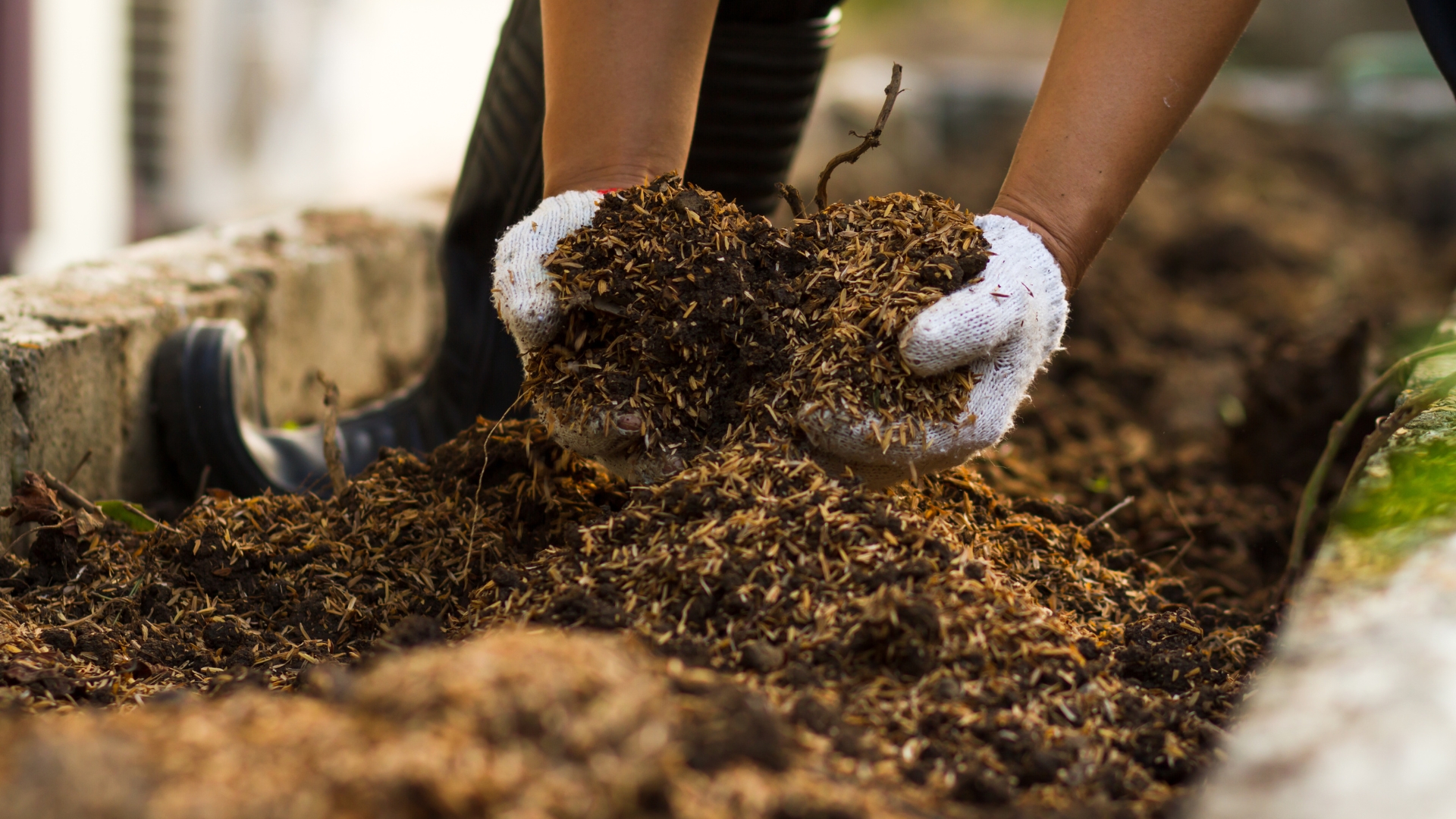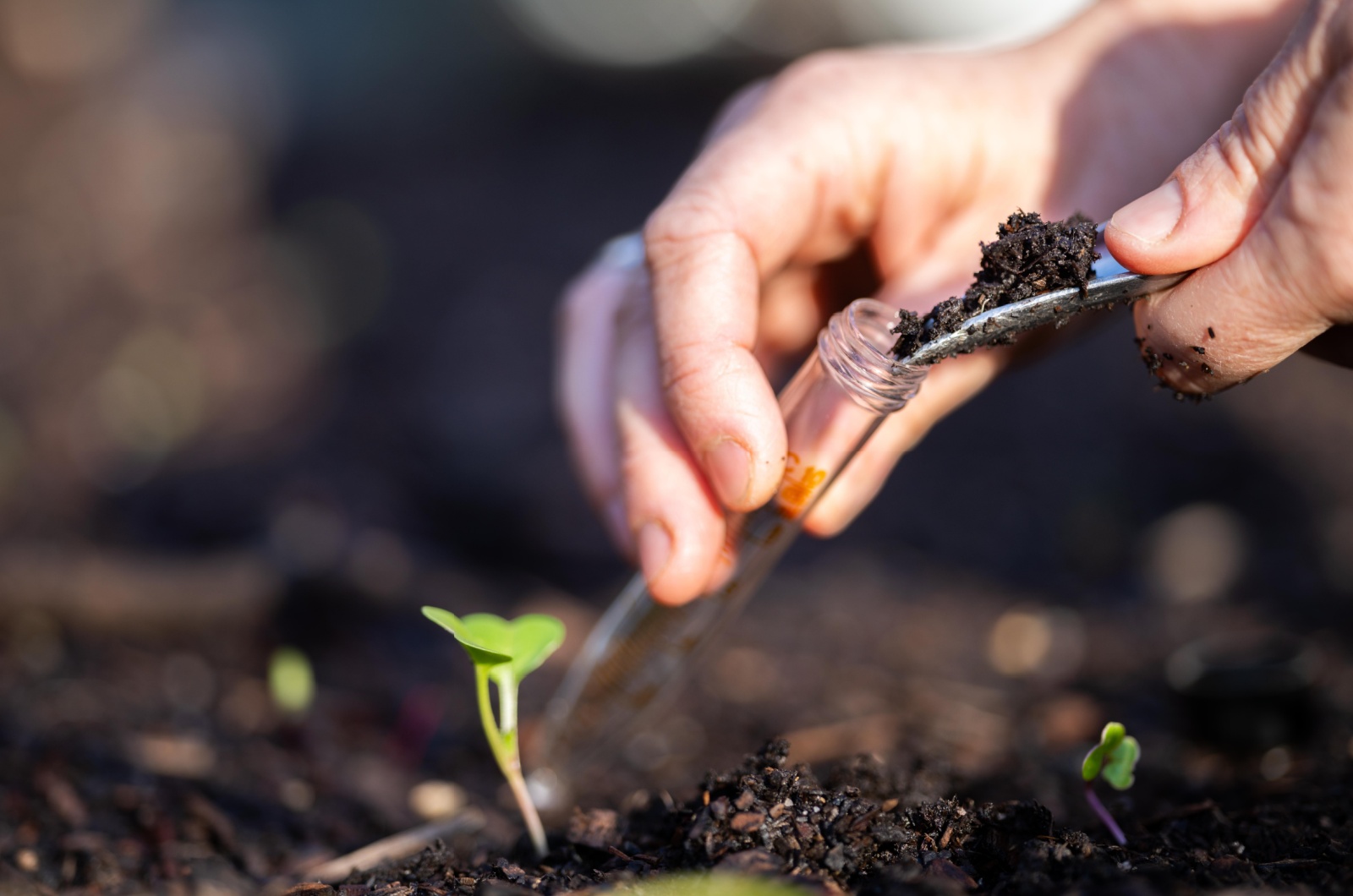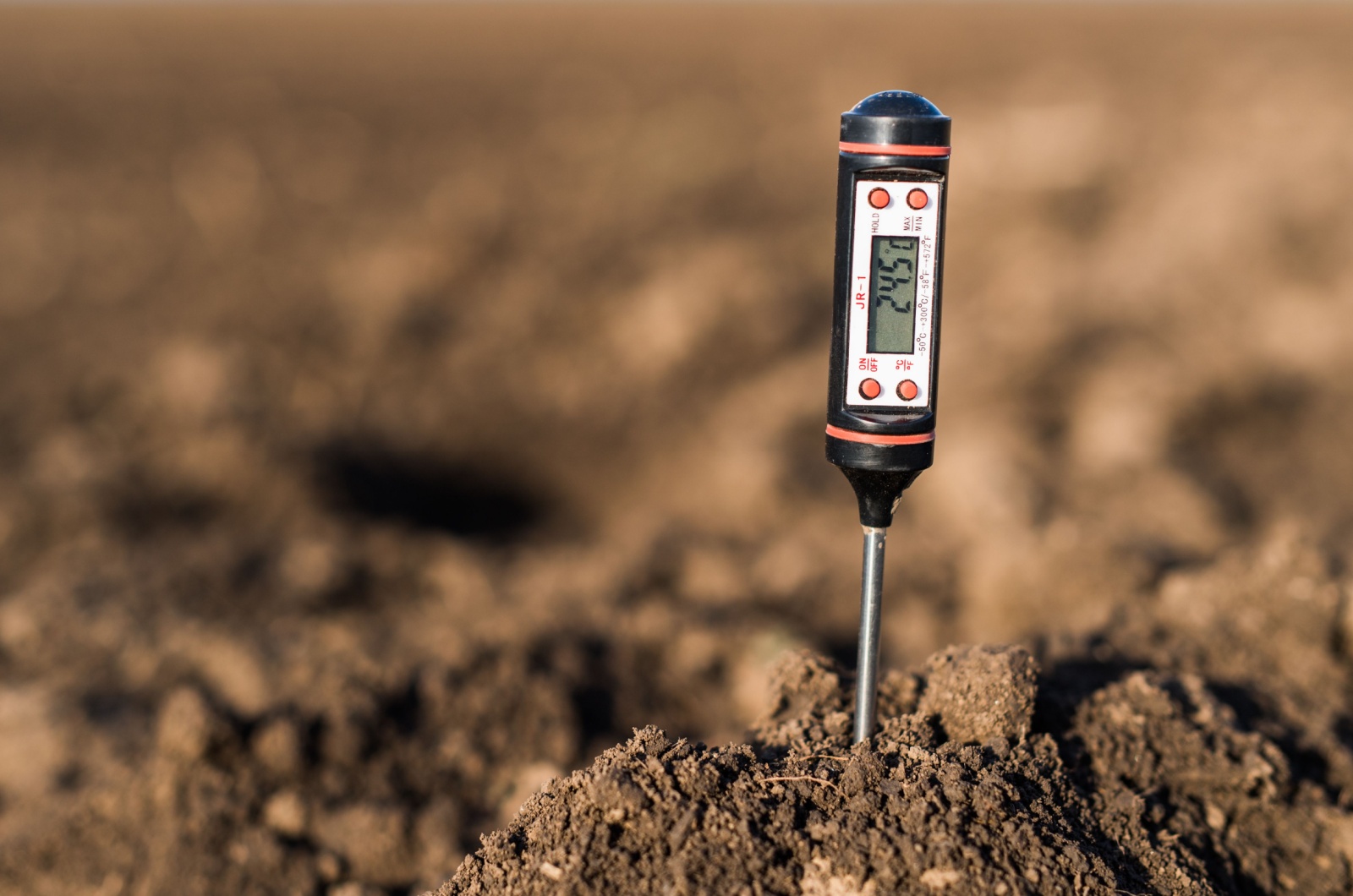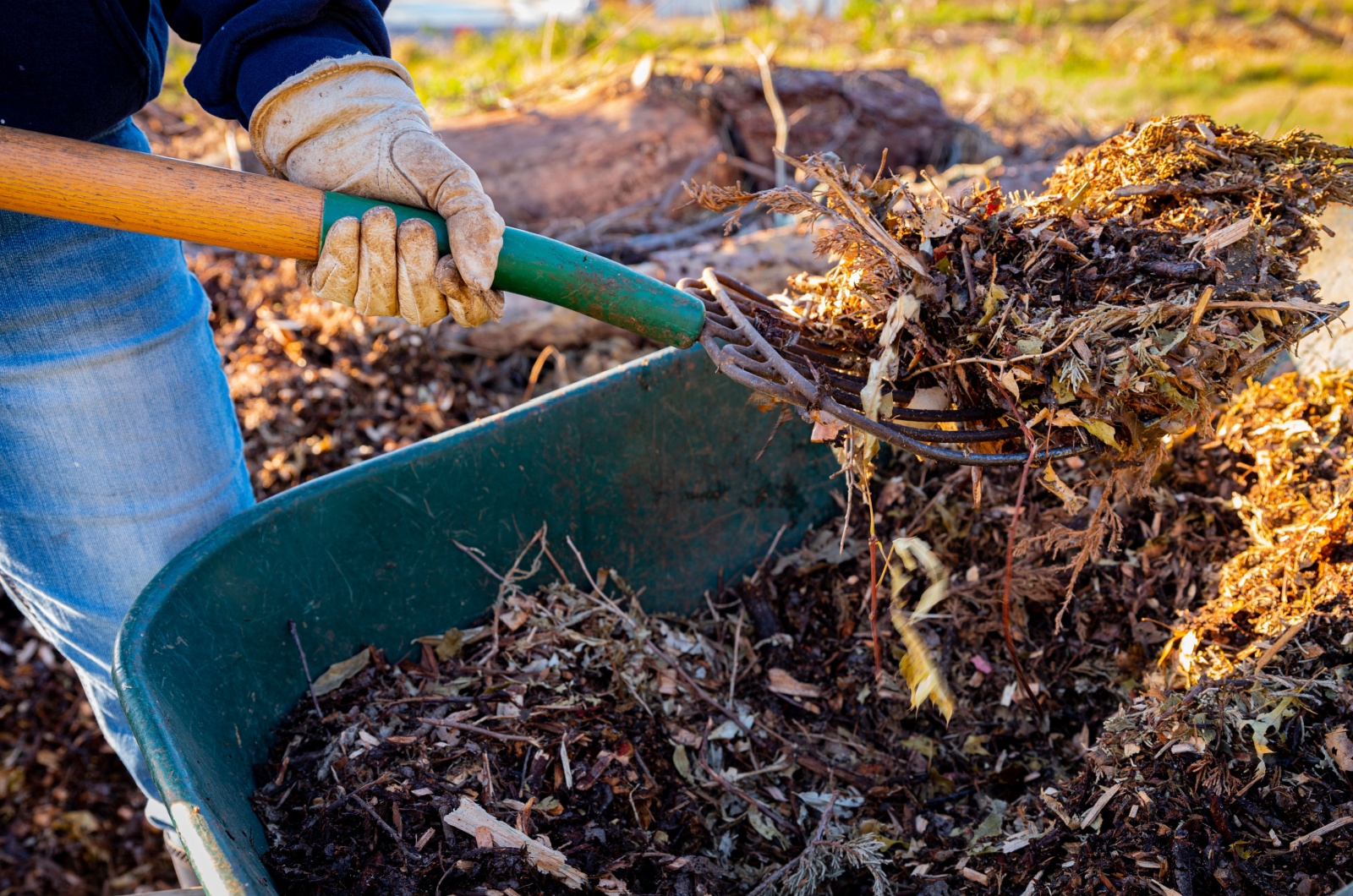Your garden soil is the foundation for successful gardening – nutrient availability, drainage, moisture retention, microbes, and lots of other factors that affect plants’ growth are all found in the soil.
Whether you’re a seasoned gardener or just starting out, understanding how to enhance your soil sets the stage for a vibrant and thriving garden.
And in this article, we are going to share some simple tips on how to properly amend garden soil and lay the groundwork for a thriving garden!
1. Test Your Soil
If you are just starting out, then testing the soil should be the first thing on your agenda. Every three to four years, your soil should be checked for nutrients, even if you are an experienced gardener.
This is done because the plants continuously absorb nutrients from the soil, which leads to depletion and nutrient imbalance. These issues negatively impact the growth of your plants and veggies; and simple fertilization won’t fix this!
A soil test can reveal any deficiencies that need to be fixed, as well as the pH (acid/alkaline ratio), which dictates what can be grown.
You can buy a soil testing kit from Amazon or call professional help – either way, you’ll get good results!
Related: Ground-Up Garden: Here’s How To Prepare Your Garden Soil For Planting
2. Fix Deficiencies
Once you’ve got the results of your soil test, it’s time to thoroughly inspect them.
Plants need three crucial nutrients – phosphorus, nitrogen, and potassium. Each of these contribute to plant growth differently; for instance, nitrogen improves vegetative growth while potassium increases flower production.
So, it’s important that your soil has each of these three mentioned nutrients. If they are in different ratios, it will affect plant growth differently.
So, what you can do is add a specific nutrient if it is lacking to balance things out, or add an all-purpose balanced fertilizer to improve the amount of all three nutrients.
Additionally, garden soil can benefit from organic matter, such as shredded bark, manure, or compost – these can increase primary nutrients and trace minerals that are vital to plant health.
The newest type of soil is biochar “dark earth”, which has a high phosphorus content and a high nutrient density. Any organic matter that has undergone carbonization at high temperature with little or no oxygen is considered “dark earth”.
Supplementing with micronutrients like calcium, magnesium, sulfur, and so forth may also be required in addition to these three main nutrients.
Related: 5 Best Homemade Phosphorus Fertilizer Recipes + When To Use Them
3. Check The pH Levels Of Your Soil
Soil pH lets you know if your soil is acidic or alkaline – some plants, like magnolia, prefer acidic soil, while others such as clematis thrive in alkaline soil.
The pH levels are measured from 0 to 14. A pH of 7 is considered neutral, so anything lower than that is considered acidic, and values above 7 are considered alkaline.
Most soil pH ranges between 4 to 9, depending on the type of plant being grown. Some plants can even tolerate both conditions, while others are easily harmed by improper pH levels.
In case your soil is too acidic, you can try adding lime; if it is too alkaline, consider adding aluminum sulfate.
If you plan to grow blueberries, this might be helpful: What Is The Perfect Soil pH For Blueberries?
4. Feed Your Soil
Besides nutrients, soil needs a living biome to help plants grow and thrive. These include helpful bacteria and fungi with the capacity to absorb nutrients.
Find soil amendments on Amazon or in a garden center – you can try this mycorrhizal fungi because they encourage root development by gathering nutrients through a network of strands.
These fungi and other beneficial microbes can improve nutrient availability and absorption, make your plants resilient, improve soil quality, and at the same time encourage plant growth!
Related: Why Are Earthworms So Good For Our Soil?
5. Add Some Diversity
The most important thing is to create a healthy soil that will boost the overall health of your garden plants. This can be accomplished by adding various organic amendments that are rich in nutrients and promote biodiversity.
Homemade compost, mushroom compost, leaf mold, or leaf compost can all positively impact your soil.
For instance, mushroom compost offers plenty of nutrients as mushrooms break and compose, while leaf compost breaks down and turns into rich black leaf mold.
However, you can also make compost from kitchen scraps. Here’s 95 Things You Didn’t Know You Can Compost.
6. Improve Soil Drainage
Drainage is a crucial component of garden soil. Your soil can be either well-drained or poorly-drained.
If there are puddles of water in your yard after a hard downpour, then your soil is poorly drained; but if the water drains away quickly, this is an indication of well-draining soil.
Other structures can impact soil drainage, such as trees or roof overhangs – bone-dry patches close to your house appear because of roof overhangs, but also maples and some similar tree species are rather thirsty and can quickly use up any available water.
On the other hand, downspouts from roof gutters can direct a lot more water to certain garden sections to increase their moisture content.
Too much moisture in the soil means there will be no oxygen, which is much needed for proper plant growth. Plus, overly saturated soil attracts all sorts of pests and diseases that can harm your plants.
So, what you can do is add compost and mulch to improve moisture retention, but also other soil amendments like perlite or vermiculite to improve drainage.
For container-grown plants, you can buy a fast-draining medium.
Related: Improve Your Garden Soil With These 5 Simple Methods




